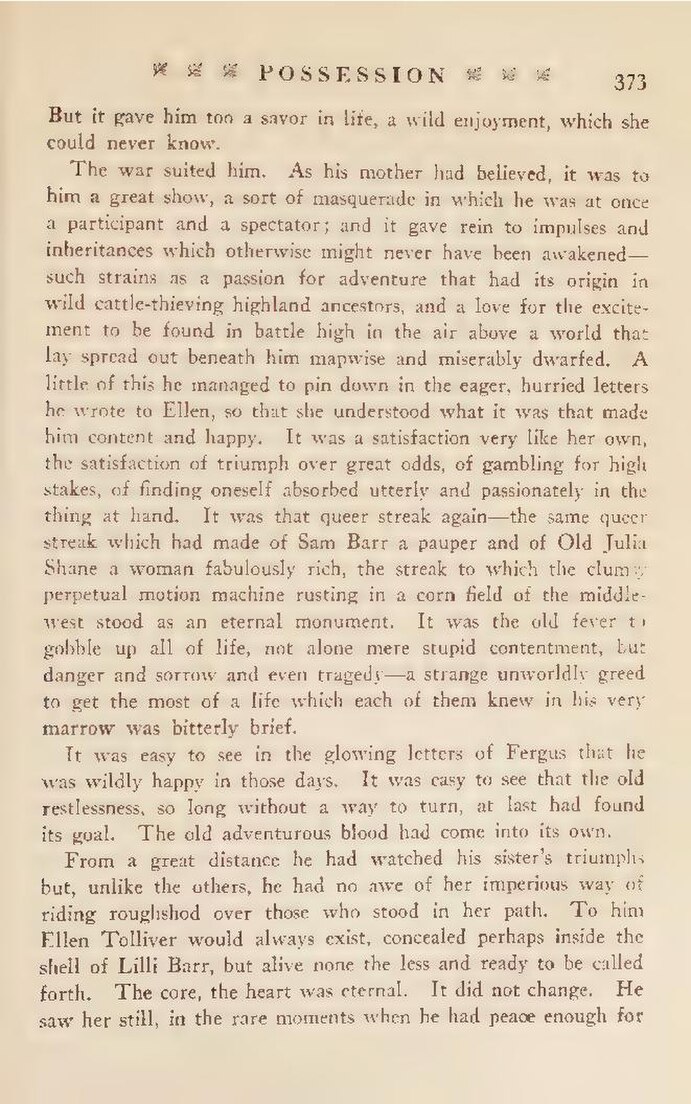But it gave him too a savor in life, a wild enjoyment, which she could never know.
The war suited him. As his mother had believed, it was to him a great show, a sort of masquerade in which he was at once a participant and a spectator; and it gave rein to impulses and inheritances which otherwise might never have been awakened—such strains as a passion for adventure that had its origin in wild cattle-thieving highland ancestors, and a love for the excitement to be found in battle high in the air above a world that lay spread out beneath him mapwise and miserably dwarfed. A little of this he managed to pin down in the eager, hurried letters he wrote to Ellen, so that she understood what it was that made him content and happy. It was a satisfaction very like her own, the satisfaction of triumph over great odds, of gambling for high stakes, of finding oneself absorbed utterly and passionately in the thing at hand. It was that queer streak again—the same queer streak which had made of Sam Barr a pauper and of Old Julia Shane a woman fabulously rich, the streak to which the clumsy perpetual motion machine rusting in a corn field of the middle-west stood as an eternal monument. It was the old fever to gobble up all of life, not alone mere stupid contentment, but danger and sorrow and even tragedy—a strange unworldly greed to get the most of a life which each of them knew in his very marrow was bitterly brief.
It was easy to see in the glowing letters of Fergus that he was wildly happy in those days. It was easy to see that the old restlessness, so long without a way to turn, at last had found its goal. The old adventurous blood had come into its own.
From a great distance he had watched his sister's triumphs but, unlike the others, he had no awe of her imperious way of riding roughshod over those who stood in her path. To him Ellen Tolliver would always exist, concealed perhaps inside the shell of Lilli Barr, but alive none the less and ready to be called forth. The core, the heart was eternal. It did not change. He saw her still, in the rare moments when he had peace enough for
